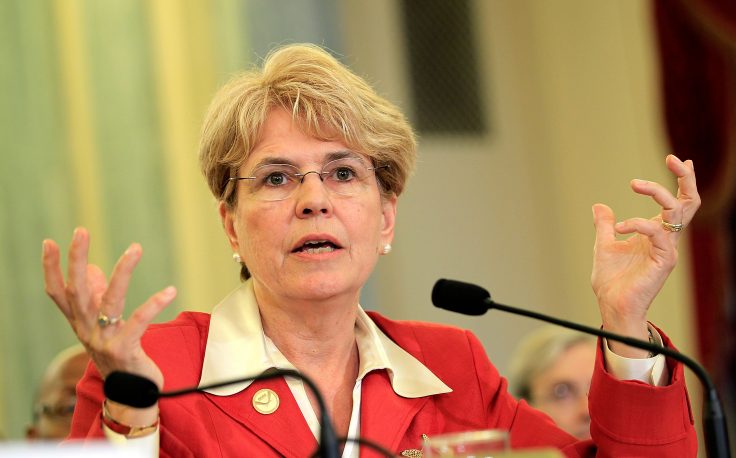Jane Lubchenco is barred from publishing in scientific journals following ethics violations

A senior White House official barred from publishing scientific studies or working with the National Academy of Sciences led the federal government’s embrace of “indigenous knowledge.”
In August 2022, the National Academy of Sciences sanctioned Jane Lubchenco, a top White House science adviser, for editing a paper coauthored by her brother-in-law, which was found to include faulty data. The academy—considered the most prestigious scientific organization in the country—determined both the conflict of interest and the approval of inaccurate research to be major ethical violations. The academy retracted the paper and barred Lubchenco from publishing any paper through the organization for five years.
That has not stopped Lubchenco, who did not deny the allegations of misconduct, from exerting influence on national science policy. As deputy director of the White House Office of Science and Technology Policy, the environmental scientist oversees a number of federal initiatives, including the push to elevate Native American folk traditions to the level of scientific fact.
Emails obtained by Protect the Public’s Trust via a Freedom of Information Act request and reviewed by the Washington Free Beacon show that Lubchenco was instrumental in producing a November memo directing federal agencies to incorporate “indigenous knowledge” into their decision making.
Indigenous knowledge posits that Native peoples possess truths about the workings of the universe due to their ethnic background. The White House guidance encourages federal regulators to consider the “spiritual” wisdom of native peoples when crafting policy.
Scientists have called this push a “dangerous” embrace of pseudoscience.
A marine ecologist by training, Lubchenco was appointed as the head of the National Oceanic and Atmospheric Administration by former president Barack Obama in 2009. The New York Times described her at the time as “an outspoken climate activist.”
During the Trump administration, Lubchenco taught at Oregon State University. Although out of government, she remained close with left-wing climate activists.
“Speaking right after me at the #BlueLeaders event this week, activist @GretaThunberg reiterated the urgent need for policy-makers and others to listen to scientists: ‘we must be united behind science,’” Lubchenco tweeted in September 2019.
At the 2020 Society for Environmental Journalists conference, Lubchenco gave a speech where she urged voters to support then-candidate Joe Biden. The upcoming election, Lubchenco said, “has real implications for equity, for racism, for environmental justice, as well as for economic viability and environmental sustainability.”
Biden tapped Lubchenco for the newly created Office of Science and Technology Policy in March 2021. In February 2022, a group of House Republicans petitioned President Joe Biden to investigate Lubchenco’s role in clearing for publication an article with faulty data, which the lawmakers called a “violation of one of the core tenets of scientific integrity.”
There is no evidence that the White House disciplined Lubchenco for her ethics violation. But the lawmakers’ letter spurred the National Academy of Sciences to investigate and later sanction Lubchenco in August 2022. Shortly after the academy handed down its decision, the White House Office of Science and Technology Policy released its first report, entitled “Protecting the Integrity of Government Science.”
“Violations of scientific integrity damage trust in both science and government,” the report noted. “They also erode the morale and innovation of Federal scientists and technologists.”
By November 2022, Lubchenco was back in the swing of things. That month, she gave the final review to the office’s memo on indigenous knowledge, which among other things instructs regulators to consider that time is “cyclical” rather than “sequential.”
“Very nice job with the revisions,” Lubchenco wrote to colleagues on November 23, 2022. “This is looking very strong … thanks for everyone’s good work on this. … Congrats.”
The next week, the White House released a blog post explaining the importance of using indigenous knowledge “to understand both the power and limits of western scientific evidence alone and advance more inclusive evidence-based policy making.”
The Office of Science and Technology Policy did not respond to a request for comment.
Original News Source – Washington Free Beacon
Running For Office? Conservative Campaign Management – Election Day Strategies!
